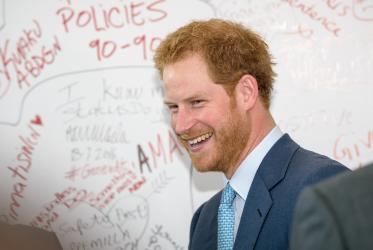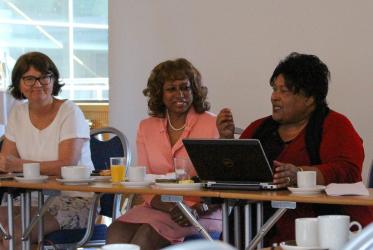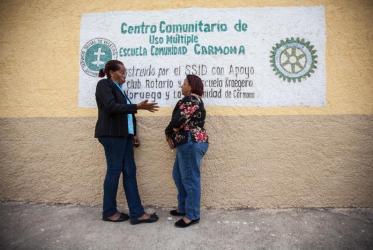Displaying 61 - 80 of 98
21 July 2016
Children are being let down over HIV care
17 July 2016
AIDS 2016: “Stigma kills more people than HIV”
17 July 2016
Symposium focuses on religion, violence, extremism
04 February 2016
WCC and AACC express grave concern over situation in Burundi
18 December 2015
Person with disability shares reflection on AIDS conference
10 December 2015
Congolese church leader speaks on DRC electoral process at UN event
17 September 2015
WCC Executive Committee speaks out on migrant crises
12 June 2015
Church leaders address statelessness in Dominican Republic
03 February 2015













